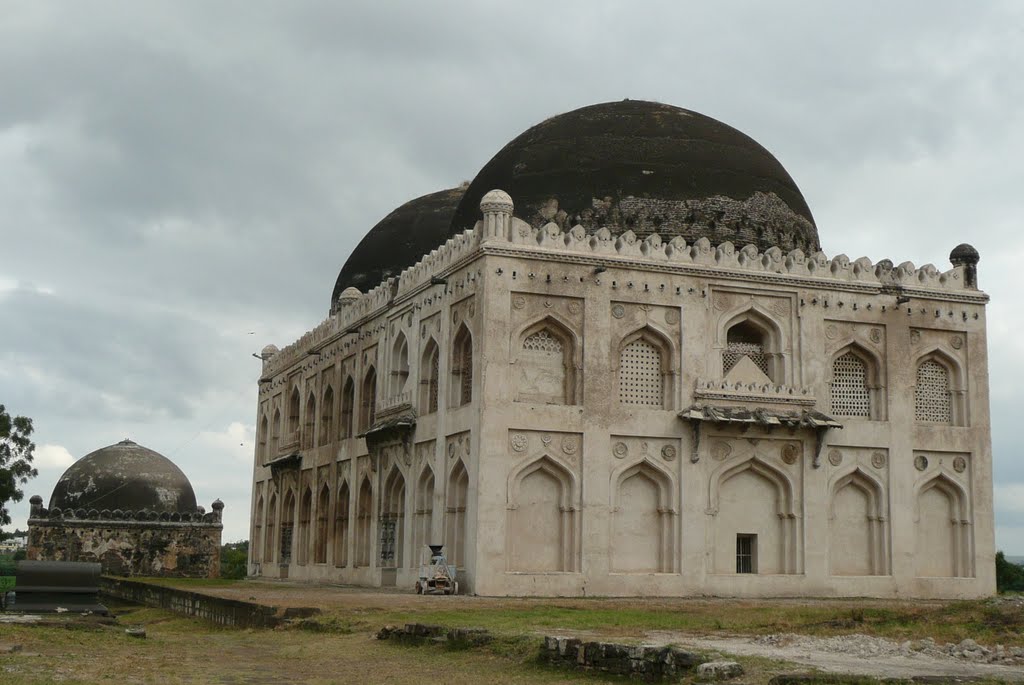Gulbarga in the Karnataka State is a historical and significant city. This city reminds us the glorious Muslim history in India and it retains till date its status of being a center of Muslim culture and activities. 623 km away from Bangalore and 200 km from Hyderabad Deccan it was under the State of Hyderabad. Gulbarga is a compound word consisting of Gul (flower) and Barg (garden), meaning thereby the city of flowers. According to traditions, the ancient name of the city was Kalaburagi, which was established in place of Gulbaga by a Government GO in 20114. Gulbarga is also known as Gulbarga Sharif because a number of Sufi shrines are located here. Gulbarga Fort and Gulbarga Jama Masjid in addition to other heritage sites make this city a significant city of pilgrimage and tourism. As per some accounts, once there were flower gardens in every household of the city, which indicates its prosperity in the past. After independence, Gulbarga became a part of Karnataka State on the linguistic lines under the reorganization of the states.
Gulbarga has been under various dynasties and kingdoms before coming under Delhi Sultanate in 1321. With it, Islamic history begins.
Bahmani Sultanate initially headquartered at Gulbarga was the first independent Islamic state in Deccan region of the South India. Bahmani Sultanate is considered one of the great sultanates in the middle ages. Alauddin Hasan Bahman Shah founded this kingdom revolting against the Sultan, Muhammad Bin Tughlaq of Delhi. This kingdom was in continuous conflict with Vijaynagra Empire. During the ministry of Mahmood Gawan, this sultanate flourished much and after 1518 it was divided into five sultanates, Nizam Shahi of Ahmad Nagar, Qutub Shahi of Golkonda, Barid Shahi of Bidar, Imad Shahi of Berar and Adil Shahi of Bijapur. These sultanates are called cumulatively to be Deccan sultanates.
During seventeen century, Aurangzeb Alamgir (R) brought with Deccan region under his Mughal Empire but during 18th century, its decline began and General Asif Shah of Aurangzeb declared independence of Golkonda and the reign of Hyderabad State started and after independence in 1956 Gulbarga was separated from Andhra Pradesh and included in Karnataka. About 37 percent population of the city is Muslim.
Historical Buildings
Among the historical monuments in Gulbarga are included Fort, in which there are a number of heritage sites in addition to Jama Masjid. Shri Kshetra Ghanapur Temple, Siddharatha Trust Buddha Vihar, Sharana Bashveshwar Garden are other important sites. In the field of Education, Gulbarga University is a known name.







Leave a Reply